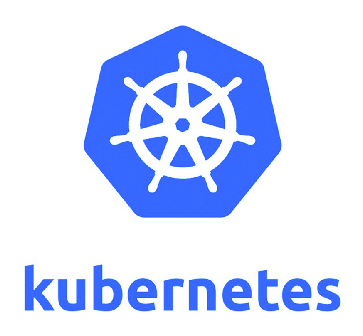
What is Kubernetes?
Kubernetes has been the talk of the town in the IT industry as of late. What exactly is Kubernetes? To put it simply, Kubernetes is the software to manage the running of containers and its images.
Sometimes you will see the term k8s instead of Kubernetes, but they are essentially the same. This name derives from the fact that there are 8 letters between the first letter of “k” and the last letter of “s” – hence K8s.
Let’s first understand what a container is
Before we dive deeper into Kubernetes, let’s first talk about container. So, what is a container? According to Docker, the leading container software “A container is a standard unit of software that packages up code and all its dependencies, so the application runs quickly and reliably from one computing environment to another. A Docker container image is a lightweight, standalone, executable package of software that includes everything needed to run an application: code, runtime, system tools, system libraries and settings”

Notice the logo of container, which is a shipping container, taking the inspiration of how a shipping container revolutionize the shipping industry in the mid 20th century.
The entire trend of making applications portable started when the idea of server virtualization was introduced few decades ago. Although some may argue that IBM VPARS was the pioneer in this technology, my first exposure of server virtualization was on Solaris Containers in early 2000s, around the same time VMware started to ship their first ESX and created an IT industry revolution that changed the landscape of hardware and software business forever.
IT professionals, developers and architects continue to tinker and look at ways to further abstract applications away from the underlying technology to increase agility, flexibility, manageability and automation. The diagram below demonstrated that move towards moving the application away from dependencies on hardware in the virtualized deployment to dependencies on OS in the container deployment.

Source: https://kubernetes.io/docs/concepts/overview/what-is-kubernetes/
However, putting goods inside a container will not do any good to the business, it will need to be moved and managed – that is where Kubernetes comes into play.
Why Kubernetes matters to organizations?
So why does Kubernetes matter and why should enterprises invest to build an infrastructure or migrate to a Cloud Kubernetes provider when it does not affect their bottom line?
It all boils down to the one major factor – Your Business. Businesses is about competitiveness, differentiation, profit margin and agility; Kubernetes was exactly created with all of these in mind – to address business problems.
Traditionally, IT infrastructure and monolithic application that take weeks and months to build, develop and modify. This is not going to be sufficient for a thriving business.
To stay competitive, businesses need to develop, deploy, roll out new services faster than their competitor, and to reduce customer churn by providing the services that is able to adapt to the ongoing requirement of the customer.
Benefits of Kubernetes
- Prevents vendor lock – Since Kubernetes is an open source system, it can be deployed verbatim into any Kubernetes distributions or in the cloud. This can provide enterprises a huge advantage of running their workload in the most cost-effective environment.
- Reduce cost of running applications – Running workload close to maximum capacity that the infrastructure can provide. Scale the workload automatically if required and have ability to roll upgrades of applications to provide additional or updated services to the end users.
- Monitor your services – The ability to monitor the services and restart it when it fails a health check.
- Deliver application faster with less effort – Kubernetes breaks down the monolithic application into a group of smaller applications that works cohesively in the cluster. This process enables the IT or project team to develop, test, integrate and deliver the application faster with less effort.
AVM Cloud Kubernetes-as-a-Service (PKSaaS)
AVM Cloud is a VMware Cloud Verified Partner. Leveraging on VMware’s PKS (Pivotal Kubernetes Services), AVM Cloud is able to offer customer the subscription of a cluster in a public cloud environment. Customers will have the flexibility to deploy on-premise private cloud or hosted in a public cloud to run your production, development and test workload. Both approaches are on pay per use basis, and customer do not have to worry about hardware, software and maintenance of the infrastructure. They just need to subscribe to the PKS service and deploy workload to it.
Interested to elevate business? Feel free to drop a message at enquiry@avmcloud.net




